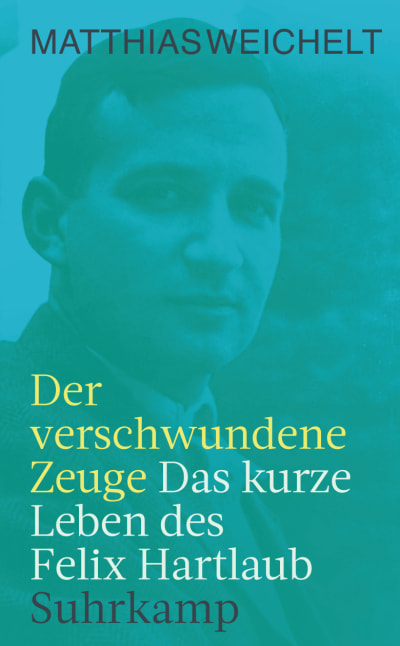When Felix Hartlaub disappeared without a trace from embattled Berlin during the last days of the war in 1945, the historian, author and illustrator is only 32 years of age.
After visiting the Odenwald School, he went to university in Berlin. That’s where he became friends with Klaus Gysi, who would later become the Minister of Culture in the GDR and the head of Aufbau-Verlag, and fell in love with his Gysi’s mother Erna. During the war, Hartlaub was ordered to Paris as an...
When Felix Hartlaub disappeared without a trace from embattled Berlin during the last days of the war in 1945, the historian, author and illustrator is only 32 years of age.
After visiting the Odenwald School, he went to university in Berlin. That’s where he became friends with Klaus Gysi, who would later become the Minister of Culture in the GDR and the head of Aufbau-Verlag, and fell in love with his Gysi’s mother Erna. During the war, Hartlaub was ordered to Paris as an employee of the Foreign Office and went on to keep the War Diary of the High Command of the Wehrmacht in the Fuehrer’s headquarters in the Wolf's Lair and on the Obersalzberg.
Hartlaub has described the brutality of his times, the »mean-eater faces« in the big cities, the »clueless masculinity« of his comrades, the sentimentality and mercilessness of the military jargon with exceptional sensitivity and lucidity. His letters, notes and literary texts remain. Among them the draft of a novel about the 20 July plot, which he witnessed at close quarters – at his workplace in a barrack next to that of the Fuehrer.
»The question of the genesis, of the ›How was it possible‹, is probably going to be the only one asked of us, the only thing about which there might be something to say«, Felix Hartlaub writes. Matthias Weichelt’s biography traces the dramatic course of his life and puts the startling density and presence of his work that remains provisional and unfinished in a new light.
»a biography written with unusual elegance and surprising empathy« Tilman Krause, Die Literarische Welt
»It is great to see that […] Matthias Weichelt, editor-in-chief of the literary magazine Sinn und Form, has presented a new biography in accordance with the current state of research. Especially as it is both knowledgeable and a pleasure to read.« Oliver Pfohlmann, Der Tagesspiegel
»With his lively language and atmospheric descriptions Weichelt introduces us to a menacing-monstrous world that gets disturbingly close. […] a prime example of an extremely vivid biography.« Edelgard Abenstein, Deutschlandfunk Kultur
»a biography written with unusual elegance and surprising empathy« Tilman Krause, Die Literarische Welt
»It is great to see that […] Matthias Weichelt, editor-in-chief of the literary magazine Sinn und Form, has presented a new biography in accordance with the current state of research. Especially as it is both knowledgeable and a pleasure to read.« Oliver Pfohlmann, Der Tagesspiegel
»With his lively...
Persons
Matthias Weichelt
Matthias Weichelt, born in 1971, editor-in-chief of Sinn und Form, lives in Berlin. He is the co-editor of the commented edition of the collected works by Nelly Sachs (2011) and author of the biographical essay Peter Huchel (2018).
Matthias Weichelt, born in 1971, editor-in-chief of Sinn und Form, lives in Berlin. He is the co-editor of the commented edition of the...
